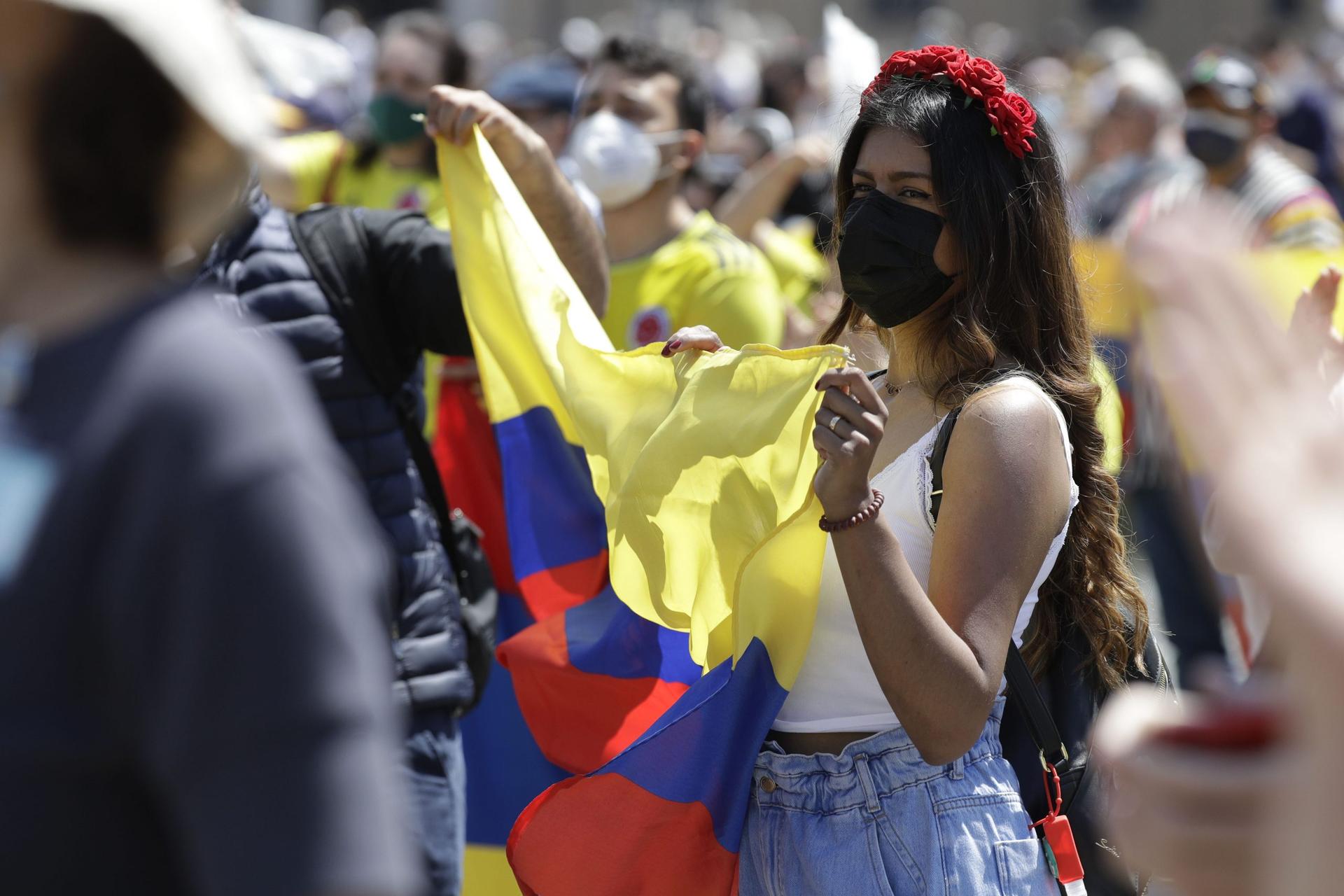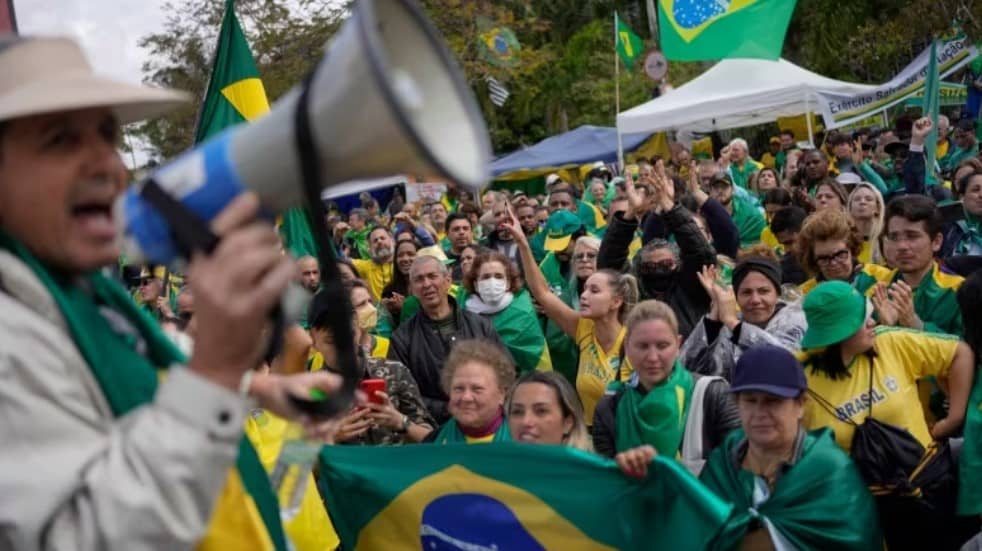ROME – Two South American bishops’ conference met this week for their general assemblies, with the prelates from Venezuela urging a “re-founding” of the nation, and those in Colombia calling for reconciliation as the wounds of a 60-year civil war still fester.
Colombia
The bishops of Colombia met this week for their 111th Plenary Assembly.
Archbishop Luis Jose Rueda Aparicio of Bogota is the newly elected president of the bishops’ conference, and said both the country and the Church need to continue moving towards reconciliation, and presented a three-fold list of priorities: Permanent communion, truth and respect for life.
Even though the government signed a 2016 peace agreement with FARC, the country’s biggest Marxist guerrilla group, the ghost of the 50-year civil war is still haunting the country, with pockets of violence in several regions.
Rueda called for Catholics to seek the truth, but through dialogue and being respectful of others.
Speaking to Colombia’s youth, the prelate urged them to be “builders of peace, builders of a country that deserves to live well; you have all the elements to be able to live in unity, justice and respect.”
Luis Manuel Alí Herrera, auxiliary bishop of Bogota and a member of the Pontifical Commission for the Protection of Minors, was elected secretary general of the bishops’ conference, and urged the youth to take an active role in the Latin American Ecclesial Assembly that will be held Nov. 21-28 in Mexico City, with a continent-wide consultation process that is being carried out by each national bishops’ conference.
RELATED: LatAm begins synodal process with continent-wide assembly
The new leadership of the Colombian bishops’ conference spoke with the media during a virtual press conference earlier in the week.
The vice president of the conference, Archbishop Omar Sánchez Cubillos of Popayán, said that the Church has never been absent from Colombia’s efforts to forge a lasting peace. This, he said, is visible through the different actions that bishops, parish priests, religious and lay people throughout the country carry out, because “in every parish in Colombia there are peace workers.”
“One of the tasks that the Lord has given us today is to think about the country and help it to emerge from this conflict that afflicts it in terms of peace,” he said. “If we do not resolve the issue of peace, we will be stuck in a lot of pain, with many fractures and, in the end, we will not see the country we deserve.”
Venezuela
The Venezuelan bishops conference (CEV) met virtually Wednesday through Friday for their 116th assembly, where they reflected on the country’s current political crisis, including violent clashes between protesters and police in Caracas, where 90 percent of the population lives under the poverty lie. The bishops also debated the need for a non-political nationwide vaccination plan to fight the COVID-19 pandemic, a proposal that Cardinal Baltazar Porras had presented to Pope Francis last month.
RELATED: Venezuelan cardinal says country needs ‘peaceful, negotiated’ solution to political crisis
Though the conference meeting was held behind closed doors, the website of the bishops shared the summary of some of the talks given by the prelates.
Archbishop José Luis Azuaje, of Maracaibo and President of the CEV, began the opening remarks by sending a message of solidarity to those who are suffering due to the pandemic, either because they’re sick or because they’ve lost a loved one to the virus.
He also thanked the health professionals “who have given of themselves with a burning heart” to provide care to those infected. “We join the clamor of the people in asking for the mass vaccination against COVID-19, with vaccines recognized by the health authorities, the WHO, PAHO, and not just any vaccine experiment,” the prelate said.
Although not directly mentioned by the archbishop, President Nicolas Maduro recently announced an agreement to purchase the Abdala vaccine that Cuba is reportedly developing.
Azuaje also urged the bishops to walk together “in synodality,” although recognizing that this “togetherness does not dilute responsibilities, but strengthens the ministeriality of the Church and the sense of belonging of all to the people of God and their responsibility in the present times.”
The synodal reality of the Church, the prelate argued, “can also serve to analyze the Venezuelan reality, because walking together manifests the desire to go out to meet the other and to try to build a ‘we.'”
Referring to the 200th anniversary of the Battle of Carabobo that secured Venezuela’s independence from Spain, Azuaje said that this historical event should encourage “a radical change, which is not only a change of authorities or national leaders, but implies a conversion in the way of seeing and acting in socio-political realities,” referring to “the urgent need to re-found the Nation, understood as a symbolic entity that culturally links the state territory with the citizens, creating the loyalty and cohesion necessary for the link between the state and the people to be permanent and stable over time.”
“To re-found the Nation, one of the most important tasks that we Venezuelans have pending is to regain the strength to be ‘subjects’, to regain autonomy and freedom as citizens and as a Nation in the face of the foreign political-cultural invasion in which we find ourselves,” Azuaje said. “There can be no freedom without a ‘subject’ that assumes that value. The very serious problem in our country today is that everyone wants to walk separately. To walk together is the constitutive path of the Church and, we could say, of the people.”
Follow Inés San Martín on Twitter: @inesanma















